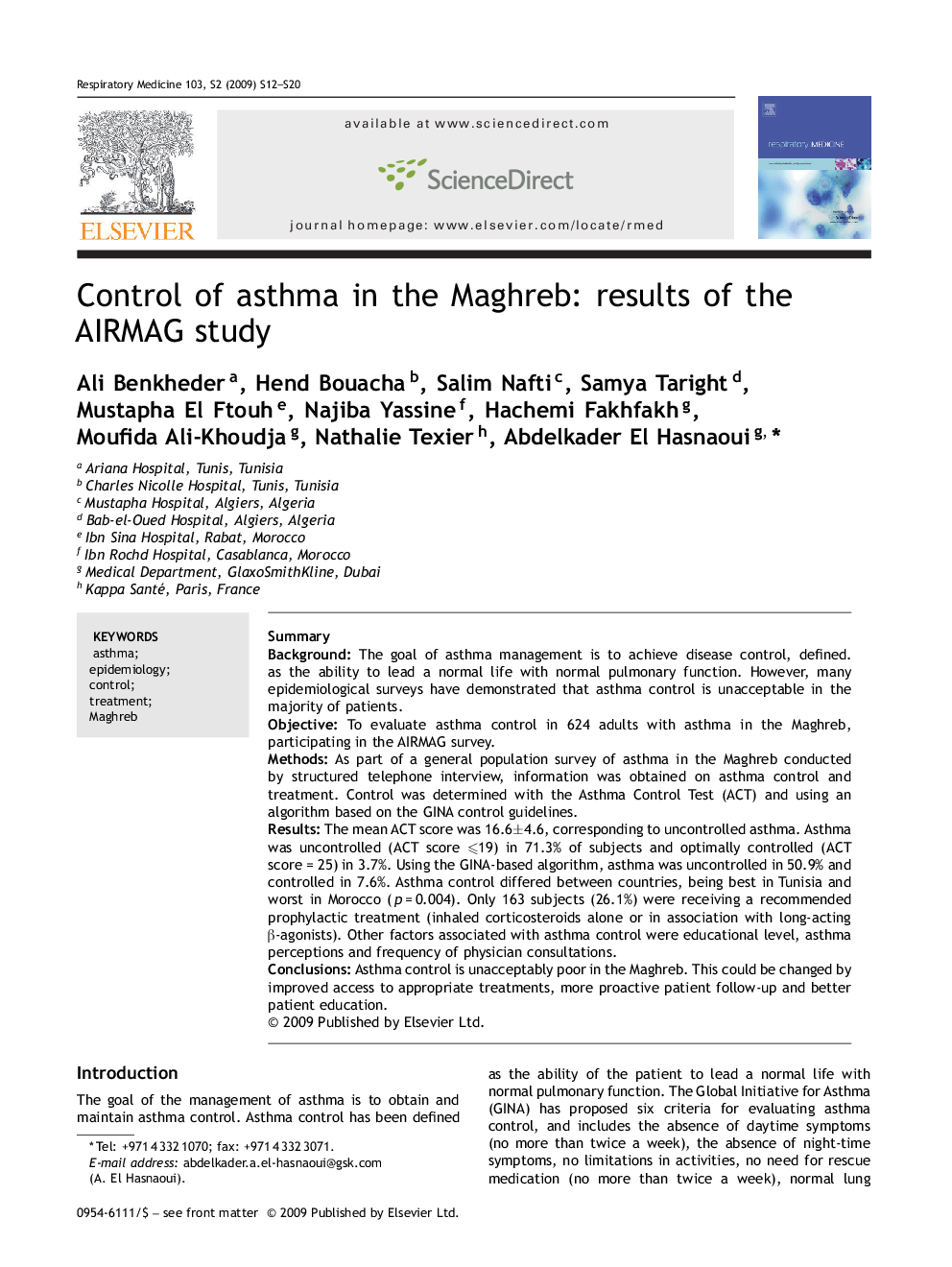| کد مقاله | کد نشریه | سال انتشار | مقاله انگلیسی | نسخه تمام متن |
|---|---|---|---|---|
| 4211334 | 1280635 | 2009 | 9 صفحه PDF | دانلود رایگان |

SummaryBackgroundThe goal of asthma management is to achieve disease control, defined. as the ability to lead a normal life with normal pulmonary function. However, many epidemiological surveys have demonstrated that asthma control is unacceptable in the majority of patients.ObjectiveTo evaluate asthma control in 624 adults with asthma in the Maghreb, participating in the AIRMAG survey.MethodsAs part of a general population survey of asthma in the Maghreb conducted by structured telephone interview, information was obtained on asthma control and treatment. Control was determined with the Asthma Control Test (ACT) and using an algorithm based on the GINA control guidelines.ResultsThe mean ACT score was 16.6 ± 4.6, corresponding to uncontrolled asthma. Asthma was uncontrolled (ACT score ⩽19) in 71.3% of subjects and optimally controlled (ACT score = 25) in 3.7%. Using the GINA-based algorithm, asthma was uncontrolled in 50.9% and controlled in 7.6%. Asthma control differed between countries, being best in Tunisia and worst in Morocco (p = 0.004). Only 163 subjects (26.1%) were receiving a recommended prophylactic treatment (inhaled corticosteroids alone or in association with long-acting β-agonists). Other factors associated with asthma control were educational level, asthma perceptions and frequency of physician consultations.ConclusionsAsthma control is unacceptably poor in the Maghreb. This could be changed by improved access to appropriate treatments, more proactive patient follow-up and better patient education.
Journal: Respiratory Medicine - Volume 103, Supplement 2, December 2009, Pages S12-S20